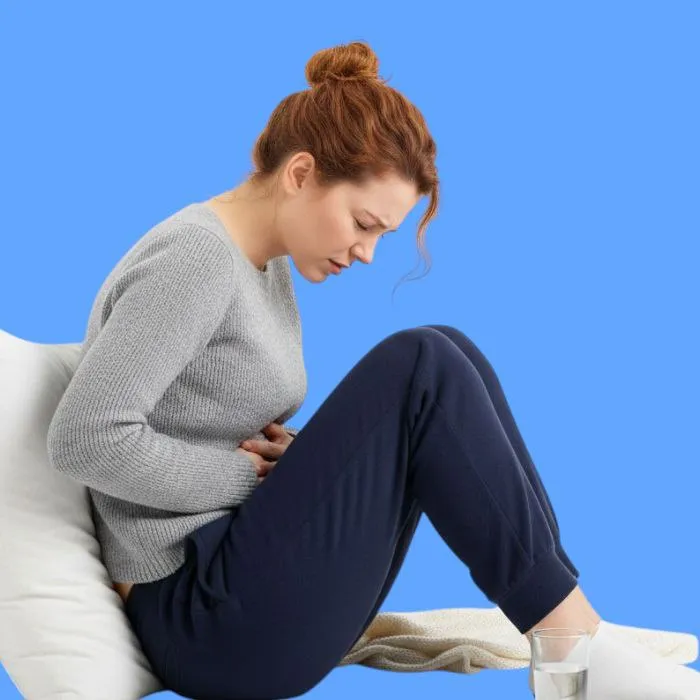What is menstrual pain?
Menstrual pain is a common condition that many women experience before or during their period.
The pain is caused by contractions in the uterine muscles as they expel their lining. It can be mild in some women and severe in others.
The pain usually goes away after the period ends, but in some cases, it may indicate a health problem that requires follow-up.
What are the causes of menstrual pain?
There are several common causes of menstrual pain, including:
- Severe uterine contractions during menstruation.
- High levels of prostaglandins, which cause cramps.
- Emotional stress or tension.
- Endometriosis or polycystic ovary syndrome.
- Using an intrauterine device (IUD) as a contraceptive method.
What are the common symptoms of menstrual pain?
Several signs and symptoms accompany menstrual pain, such as:
- Lower abdominal pain extending to the back or thighs.
- A feeling of heaviness or strong cramps in the uterus.
- Sometimes nausea or vomiting.
- Headache or mild dizziness.
- Mood changes and irritability.
When should you see a doctor?
It is recommended to see a doctor in the following cases to avoid health problems:
- If the pain is severe and interferes with daily activities.
- If the pain persists after your period ends.
- If there is abnormal or intermittent bleeding.
- If you feel dizzy or faint frequently.
- If you suspect endometriosis.
What are the methods for diagnosing menstrual pain?
The condition is diagnosed based on medical history and clinical examinations, including:
- A physical examination of the pelvis to assess the pain.
- An ultrasound to detect any tumors or cysts.
- A blood test to assess hormone levels.
- A laparoscopy in chronic cases to accurately determine the cause.
What are the methods for treating menstrual pain?
There are several methods that can help relieve menstrual pain, including:
- Using pain relievers such as ibuprofen.
- Applying warm compresses to the lower abdomen.
- Regular light exercise.
- Drinking soothing herbs such as ginger and chamomile.
- Use hormonal contraceptives under the supervision of a doctor.
Is menstrual pain curable?

In most cases, the pain can be easily controlled with regular treatment and lifestyle changes.
However, in some chronic cases, specialized medical treatment is required to correct the underlying cause.
Following up with a doctor helps reduce pain and improve quality of life.
What are the tips for preventing menstrual pain?
There are a number of tips that can help reduce the severity of pain, including:
- Maintaining a healthy and balanced lifestyle.
- Reducing caffeine and saturated fat intake.
- Getting enough sleep and avoiding excessive sleep.
- Practicing yoga or meditation to relieve stress.
- Eating light, nutritious meals.
What are the potential complications of menstrual pain?
Some complications may occur if treatment is not followed, such as:
- Increasing pain intensity over time.
- Poor concentration and difficulty performing daily tasks.
- Anemia due to excessive bleeding.
- Psychological effects such as anxiety or depression.
- Possibility of hidden, undetected gynecological diseases.
Frequently Asked Questions About Menstrual Pain
Is menstrual pain normal?
Yes, it is normal as long as the pain is moderate and doesn't interfere with daily activities.
Can menstrual pain be reduced with exercise?
Yes, light exercise helps improve blood circulation and reduce cramps.
Are warm drinks effective for pain relief?
Yes, warming herbs like ginger can help soothe cramps.
Do foods affect the severity of pain?
Certainly, fatty and fried foods can increase cramps.
Article Summary
Menstrual pain is an experience that most women experience, and its severity varies from person to person.
Paying attention to diet, rest, and physical activity can significantly reduce pain.
If the pain persists or increases beyond normal, you should consult a doctor to determine the cause and treat it.